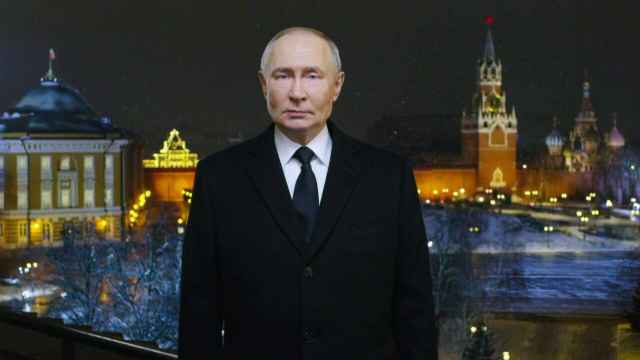Russia and Ukraine, both major Black Sea grain exporters, are poised for strong sales campaigns despite political crisis and economic sanctions with their near record harvests set to beat struggling French wheat in key world markets, traders said.
Western countries have imposed sanctions on Russian banks and several companies, limiting their access to medium and long-term financing over Moscow's support of rebels in Ukraine and the annexation of the Crimean peninsula.
However, they have left short-term finance, crucial for Russian trade, unaffected so far, which together with the coming financial help for Ukraine will allow the near-record harvests in both countries to dominate their markets.
"Russia will most likely remain a successful grain exporter this year as sanctions did not impact short-term credit," an unidentified Kiev-based trader with a large Western firm said. He also expects Ukrainian wheat exports to remain high.
While Russian grain remains unaffected, sanctions have already limited access to Western money for Russia's biggest oil producer, Rosneft, which accounts for 40 percent of Russian oil production.
They have also put oil traders on guard.
Food and grain supplies to other countries are worth $16 billion, accounting for 3 percent of Russia's $526 billion exports last year, compared with 70 percent brought in by oil and gas exports. Grain exports were worth $4.8 billion in 2013, according to the country's statistics service Rosstat.
Despite these modest foreign currency earnings, any sanctions on Russia's grain trade would probably lead to a rise in global wheat prices, currently near a four-year low.
Russia shocked grain markets with a one-year export ban in 2010 when drought ravaged that year's harvest. The move proved the catalyst for a surge in grain prices and political instability in the heavily import-dependent Middle East and North Africa regions.
This week it fought back over the latest U.S. and EU sanctions with import bans on Polish fruit and Ukrainian juice.
Risk Supports Sales
The risk of further sanctions ahead will support demand for Russian wheat early in the current 2014/15 marketing year, which started on July 1, several Western traders and analysts said.
"The threat of sanctions will only make exporters more eager to make quick sales early in the season as the crop arrives," a German trader said.
However, the risk to exports was played down by traders based in Russia and Ukraine.
"Exports from Ukraine and Russia … will continue despite all sanctions and political aspects because for many consumers [the] price of grain, and not politics, is important," said Mykola Vernytsky, head of Ukraine's ProAgro consultancy.
"Any real problems for exports would be in one case only — if fighting [reaches] the ports," he added.
So far, fighting between Ukrainian forces and pro-Russian separatists has been concentrated in the east of the country and the key Ukrainian Black Sea ports are in the south.
Competing With Peers
Russia and Ukraine compete to supply North Africa and the Middle East against countries such as France, the European Union's largest wheat exporter, which is grappling with a rain-affected harvest this season.
Russia's grain exports will be supported by dry weather, which has given farmers better quality grain than previously expected, Russian agriculture consultancy SovEcon said.
"Russia is having a fantastic crop and that's where all the protein is — there's plenty [of] 12.5 percent protein milling wheat in Russia so the only demand that's going to go to the EU is the zero bug damage market where they can't buy Russian," a European trader said.
Wheat of Russian origin has dominated the latest state tenders in Egypt, the world's largest wheat importer, and traders and analysts see this continuing in the coming months.
"Countries with zero bug damage: Saudi, Algeria, they won't go to the Black Sea they will come to the EU but that's a small amount," the trader said. "All of the Middle East, Egypt's imports are going to come out of the Black Sea."
See also:
A Message from The Moscow Times:
Dear readers,
We are facing unprecedented challenges. Russia's Prosecutor General's Office has designated The Moscow Times as an "undesirable" organization, criminalizing our work and putting our staff at risk of prosecution. This follows our earlier unjust labeling as a "foreign agent."
These actions are direct attempts to silence independent journalism in Russia. The authorities claim our work "discredits the decisions of the Russian leadership." We see things differently: we strive to provide accurate, unbiased reporting on Russia.
We, the journalists of The Moscow Times, refuse to be silenced. But to continue our work, we need your help.
Your support, no matter how small, makes a world of difference. If you can, please support us monthly starting from just $2. It's quick to set up, and every contribution makes a significant impact.
By supporting The Moscow Times, you're defending open, independent journalism in the face of repression. Thank you for standing with us.
Remind me later.





